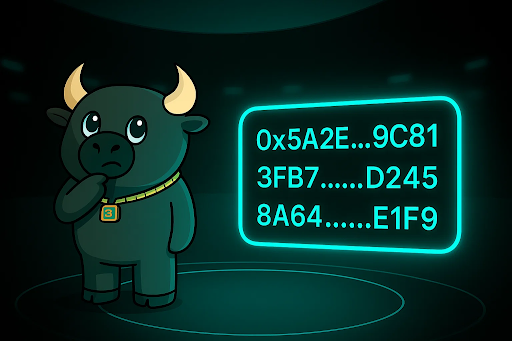Table of Contents
Nowadays, the ability to manage multiple currencies through a single platform isn't just a convenience—it's a necessity. As cryptocurrencies continue diversifying and integrating into mainstream financial transactions, the significance of multi-currency crypto wallets becomes increasingly pronounced. This post explores how these wallets are shaping the future of financial management and why they are pivotal in the current economic ecosystem.
What Are Multi-Currency Crypto Wallets?
Unlike traditional wallets, which typically support a single type of currency, a multi currency crypto wallet offers a versatile platform for engaging with a global digital economy. It allows you to store, manage, and trade multiple cryptocurrencies under one unified digital roof. These repositories support various cryptos, like Bitcoin, Ethereum, Tron, Ripple, and more, making them essential for traders and investors who operate across different crypto networks.
Integrating multi-currency wallets into the financial ecosystem marks a significant shift toward a more interconnected and versatile financial environment. These wallets are not just tools for cryptocurrency enthusiasts but are becoming essential for businesses and individuals who need to transact globally. They facilitate seamless cross-border payments and exchanges without the need for currency conversion or the high fees associated with traditional banks.
Benefits of Multi-Currency Crypto Wallets
Digital repositories offer modern users a wealth of advantages. Here’s why they are increasingly becoming a staple for savvy digital currency users:
- Streamlined Asset Management: Manage multiple cryptocurrencies from a single platform, eliminating the need to operate and secure multiple wallets or navigate various exchanges. This consolidation simplifies tracking asset performance and managing portfolio balances.
- Enhanced Security Protocols: Multi-currency wallets often employ top-tier security measures like two-factor authentication, multi-signature support, and hardware wallet integration. These features help protect assets from unauthorized access and cyber threats.
- Convenient Global Transactions: Facilitate quick and easy cross-border transactions without the hassle of currency conversions or the hefty fees typically associated with traditional banking systems. Multi-currency wallets support various global currencies, making international business or travel significantly more straightforward.
- Reduced Transaction Costs: By supporting direct transfers between various cryptocurrencies, these repositories can help avoid the fees that traditional banks and even some crypto exchanges impose for currency conversion and transfers.
- Real-Time Exchange and Updates: Many multi-currency wallets offer integrated exchange features, allowing users to convert between cryptocurrencies directly within the wallet. This functionality is often accompanied by real-time updates on currency values and portfolio performance.
- Integration with New Technologies: As blockchain and cryptocurrencies evolve, multi-currency wallets continually update to support new coins and technologies, keeping users at the forefront of digital finance.

While discussing the technological strides in multi-currency wallets, it's worth noting the integration capabilities of platforms like Nonbank. It enhances its utility and user-friendliness by integrating various cryptocurrencies and features into its systems.
For instance, the upcoming launch of the Tron Wallet feature exemplifies how Nonbank is keeping pace with emerging technologies and user demands. This feature is anticipated to further streamline the experience for users by supporting Tron, a popular cryptocurrency known for its efficient processing speeds and growing adoption in the DApps space.
Future Prospects and Innovations
The landscape of multi-currency wallets is on the brink of transformative advancements, with developers and companies driving innovation to meet the evolving needs of digital finance. Here’s a glimpse into what the future holds for these essential financial tools:
- User Interface Enhancements: Prioritizing user experience with more intuitive and user-friendly interfaces that make navigation and operation seamless for both novice and experienced users.
- Advanced Security Measures: Innovations in security, such as biometric authentication, behavioral analysis for fraud detection, and even more robust encryption methods to safeguard users' assets against new threats.
- Support for More Currencies: Expansion in the number of supported cryptocurrencies and digital assets, including newer or less common altcoins, to cater to a broader market.
- Integration with Financial Services: Increased integration with traditional financial services, enabling features like direct bank transfers, credit facilities, and more, all within the wallet platform.
- Regulatory Compliance Tools: As digital currency regulations evolve, wallets will likely incorporate more tools to help users comply with their local laws, such as automatic tax calculations and reporting features.
- Cross-Sector Adoption: Enhanced features and integrations that promote the use of cryptocurrencies in various sectors beyond just financial markets, such as retail, real estate, and more.
Concluding Remarks
Multi-currency crypto wallets are more than just a technical innovation; they are a pivotal part of the evolving narrative of global finance. With their ability to manage multiple assets securely and conveniently, they offer a gateway into the future of transactions and asset management.
As platforms like Nonbank continue to innovate and introduce features like the Tron Wallet, the potential for these repositories to become an integral part of a financial infrastructure worldwide becomes increasingly tangible. You are welcome to connect with NonBank on X to never miss an update from the platform that's ahead of its time.








